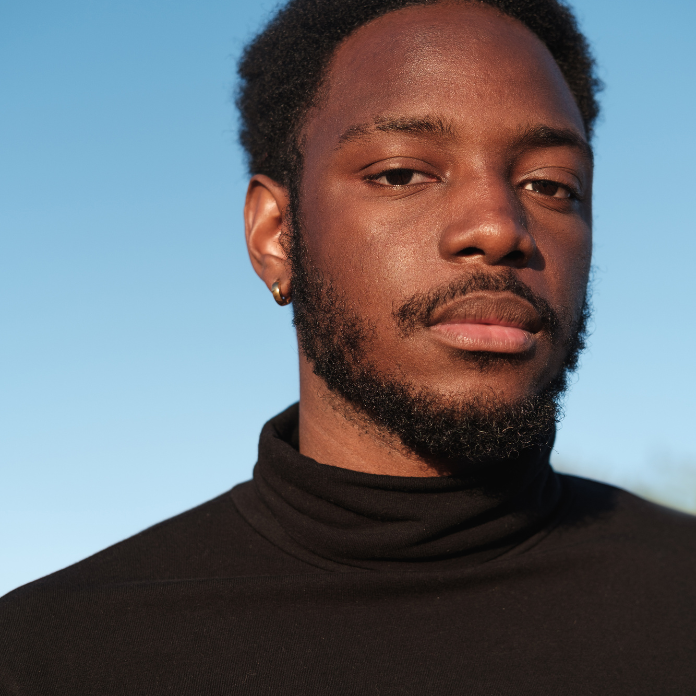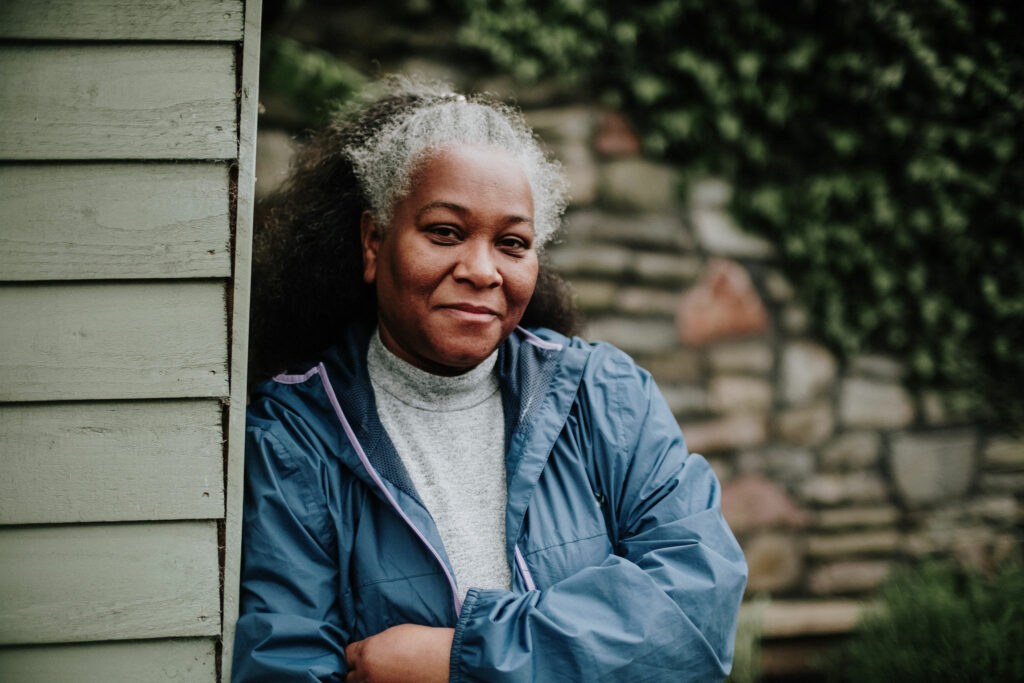
Wayne’s story
“I got a job, and that’s where I was befriended by a guy. At the time I thought he was just a friend.”


“I have seen changes in my life. I was unable to make decisions for myself before. Now I make my own decisions. I’m happy that I can do things by myself now.”
These are Priscilla’s words today. But it’s been a long journey to get here.
Orphaned at a young age, Priscilla lived with her grandmother. She was unable to go to school as her grandmother couldn’t afford it and needed Priscilla’s help with chores. One day, out of the blue, Priscilla was told that her grandmother had found work for her, arranged a passport, and was to be taken from her home country in West Africa to the UK.
But instead of enjoying a happy new life in the UK, she was trapped in a family’s private home, abused, and used as their slave. She lived in horrendous conditions for years until, one day, she managed to escape.
Not knowing where to go, she was forced to live on the streets. Life on the streets was lonely, hard and bitterly cold, and because of what she had already been through, her mental health deteriorated. She was sectioned and spent time in a psychiatric hospital before being referred to Unseen.
At the Unseen Women’s Safehouse Priscilla was supported through the ongoing effects of her trauma, getting trauma counselling and learning how to manage her medication. She took part in regular relaxation sessions, music therapy, cooking and nutrition classes, and her mental health improved.
As her independence increased Priscilla eventually moved out of the safehouse into our survivors in the community programme. This was the first time that Priscilla had lived alone for years. Her caseworker, Daisy, supported her to build her confidence and encouraged her to start volunteering in her community.
Today Priscilla has a busy life volunteering in a local charity shop, attending weekly English language classes, and seeing her small group of friends.
It has taken a long time for Priscilla to get here. She is still recovering but is moving on with her life.

“I got a job, and that’s where I was befriended by a guy. At the time I thought he was just a friend.”

Suffering from abuse all her life, sexual exploitation and domestic slavery were normal.

Katherine suffered years of constant abuse at the hands of her exploiter before finally finding freedom

• Registered charity number 1127620
• Unseen UK is a registered charitable company limited by guarantee in England and Wales
• Registered company number 06754171
© Copyright 2021 Unseen UK
| Cookie | Duration | Description |
|---|---|---|
| cookielawinfo-checkbox-analytics | 11 months | This cookie is set by GDPR Cookie Consent plugin. The cookie is used to store the user consent for the cookies in the category "Analytics". |
| cookielawinfo-checkbox-functional | 11 months | The cookie is set by GDPR cookie consent to record the user consent for the cookies in the category "Functional". |
| cookielawinfo-checkbox-necessary | 11 months | This cookie is set by GDPR Cookie Consent plugin. The cookies is used to store the user consent for the cookies in the category "Necessary". |
| cookielawinfo-checkbox-others | 11 months | This cookie is set by GDPR Cookie Consent plugin. The cookie is used to store the user consent for the cookies in the category "Other. |
| cookielawinfo-checkbox-performance | 11 months | This cookie is set by GDPR Cookie Consent plugin. The cookie is used to store the user consent for the cookies in the category "Performance". |
| viewed_cookie_policy | 11 months | The cookie is set by the GDPR Cookie Consent plugin and is used to store whether or not user has consented to the use of cookies. It does not store any personal data. |
As I came to understand more about the issue, including through a visit to an Unseen safehouse, I knew I needed to do more to stop this abuse and exploitation.
For the last five years of my Civil Service career, I was the Modern Slavery Senior Policy Advisor in the Home Office and led on development of the Modern Slavery Act, including the transparency in supply chains provision and business guidance.
I joined Unseen to lead the development of the Modern Slavery & Exploitation Helpline, and Unseen’s work with businesses. I am regularly called upon to present at national and international conferences and use my experience of working with Ministers to influence other governments internationally to take action to address modern slavery and, in particular, business supply chain issues.
In my spare time I enjoy keeping fit, music, reading and travelling.
What ultimately compelled me to act was a report on how people from Eastern Europe were being trafficked through Bristol airport to the USA. Kate Garbers, who went on to be an Unseen Director, and I wrote to all the city councillors, MPs and the Police Chief Constable challenging them on the issue. The challenge came back to us: this city needs safe housing for trafficked women. And so Unseen began.
But we never wanted Unseen to be just about safe housing. We wanted to end slavery once and for all, and that remains our driving focus.
I chaired the working group for the Centre for Social Justice’s landmark report “It Happens Here: Equipping the United Kingdom to Fight Modern Slavery”. This is now acknowledged as the catalyst behind the UK’s Modern Slavery Act of 2015. It was a great honour to be awarded an OBE in the Queen’s Birthday Honours that year. On the other hand, I’ve also been described as “the loveliest disrupter you could ever hope to meet”.
This job has taken me from building flat-pack furniture for safehouses, to working with businesses to address slavery in supply chains, to delivering training, raising awareness and advising governments around the world.
When not at work, I enjoy travelling, spending time with my dog Harley, cooking, supporting Liverpool and Yorkshire CC, music (I’m a former DJ) and endurance events such as the Three Peaks Challenge and Tribe Freedom Runs – which I vow never to do again. Until the next time.